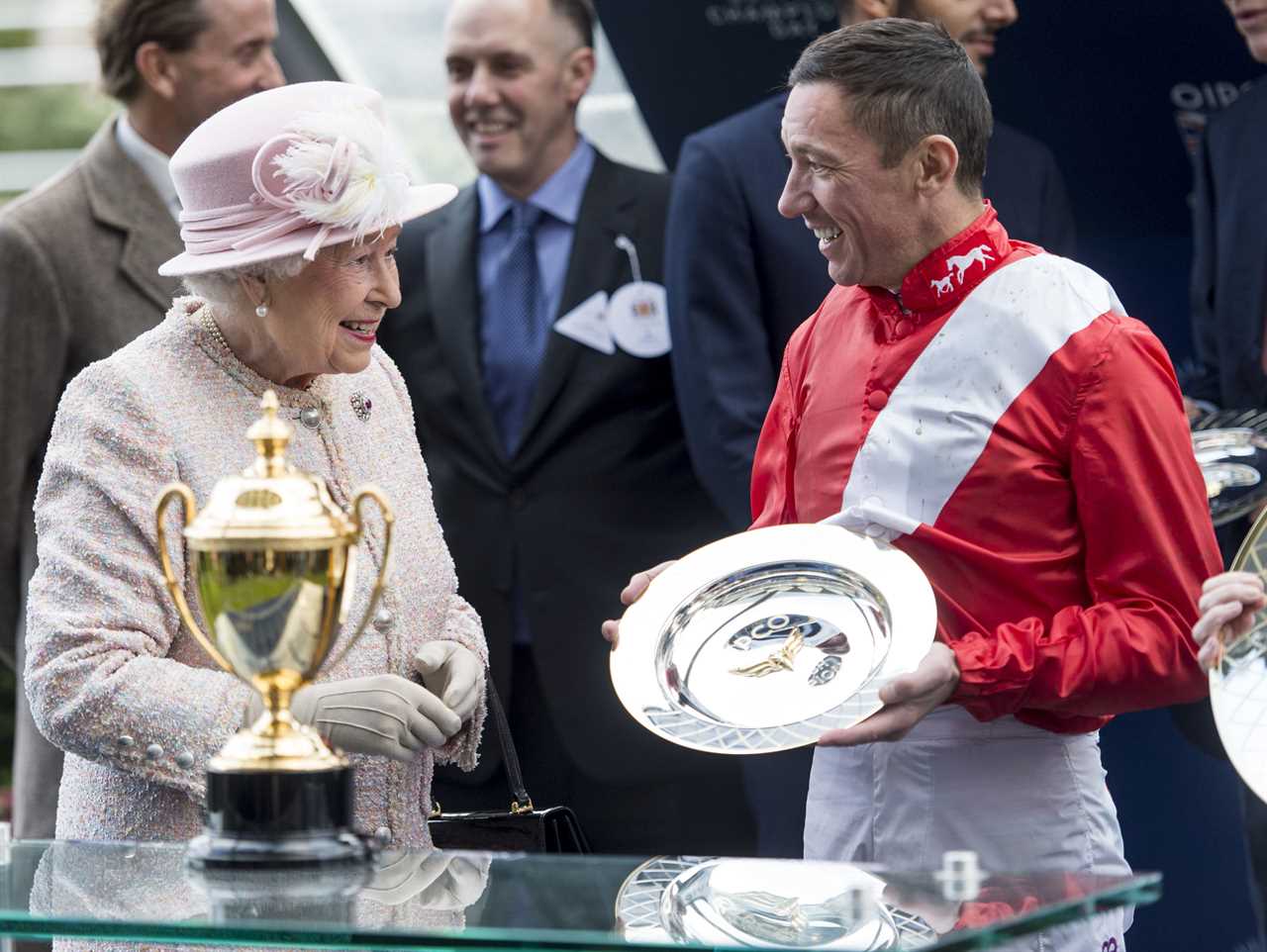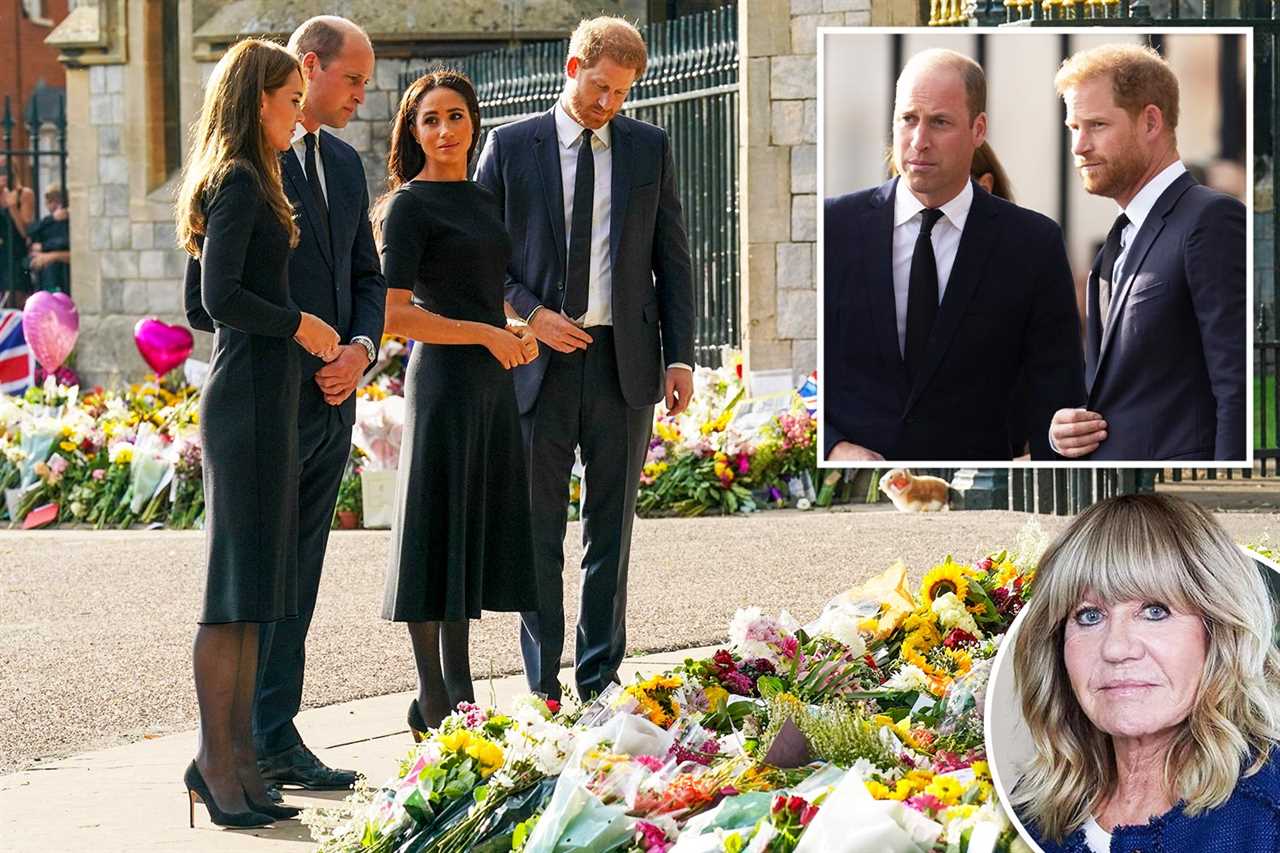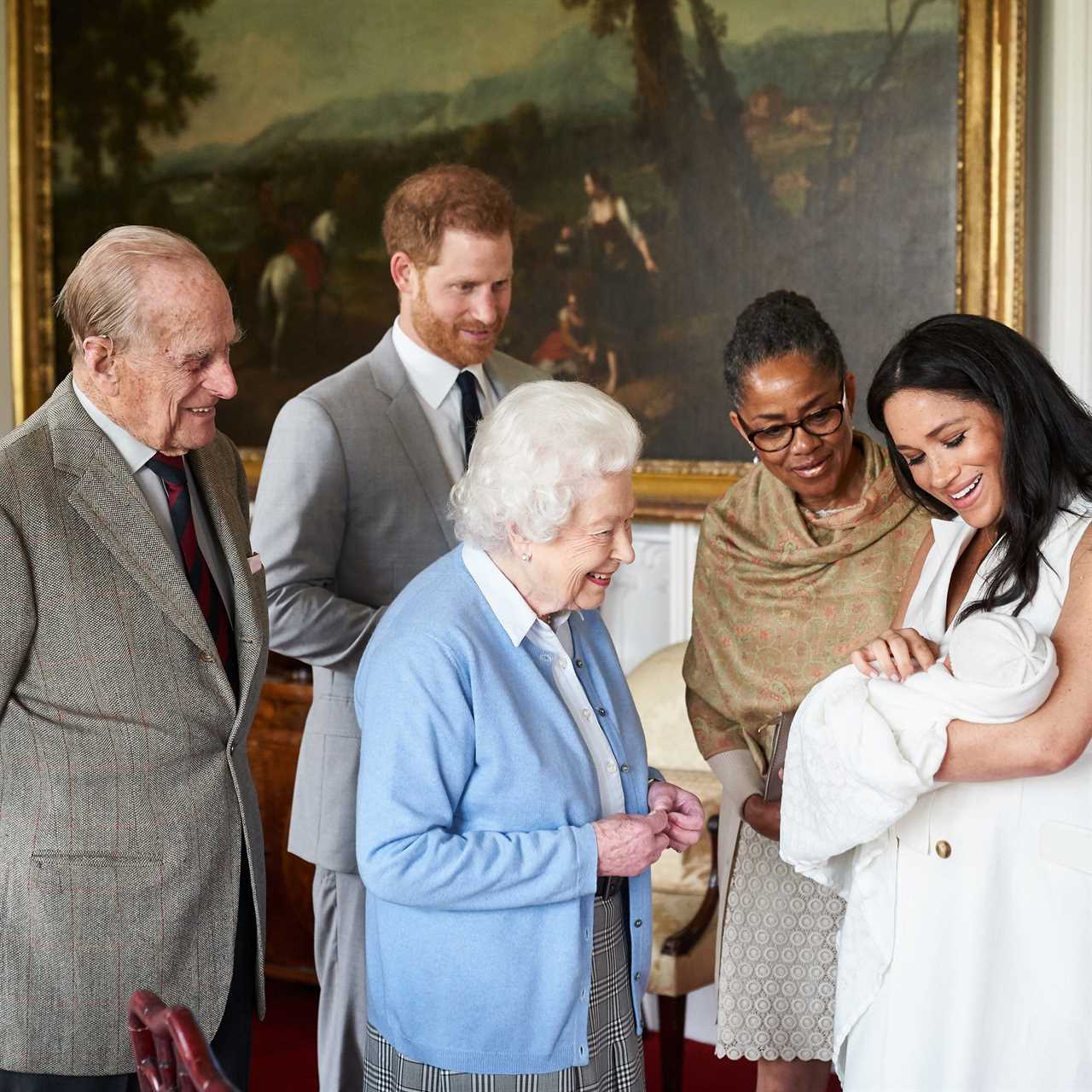WE HAVE had more brilliant monarchs than Elizabeth II, and one or two considerably more profound.
But we have never had one whose fundamental character was more solid and admirable.
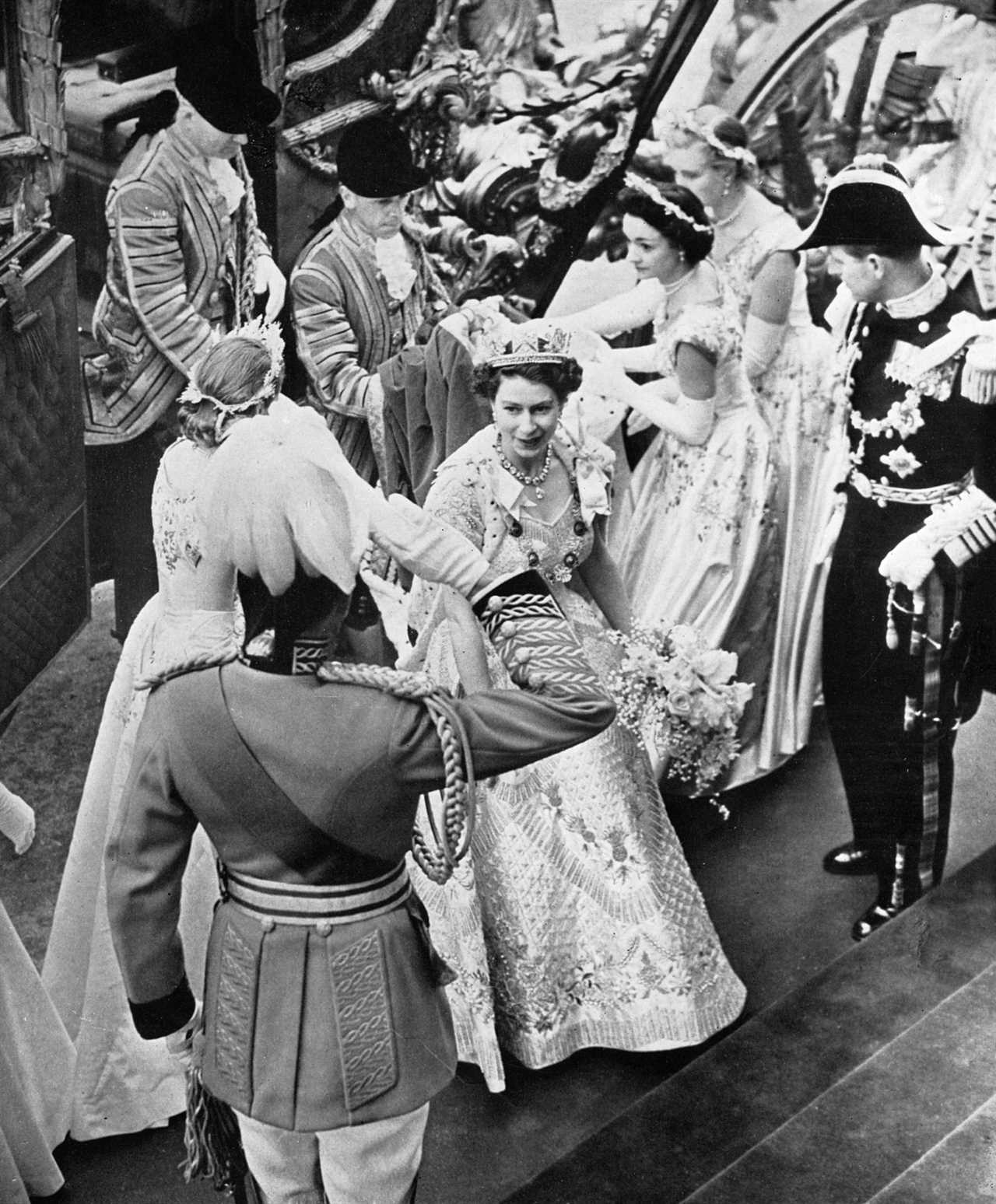
We have had more brilliant monarchs than Elizabeth II, and one or two considerably more profound
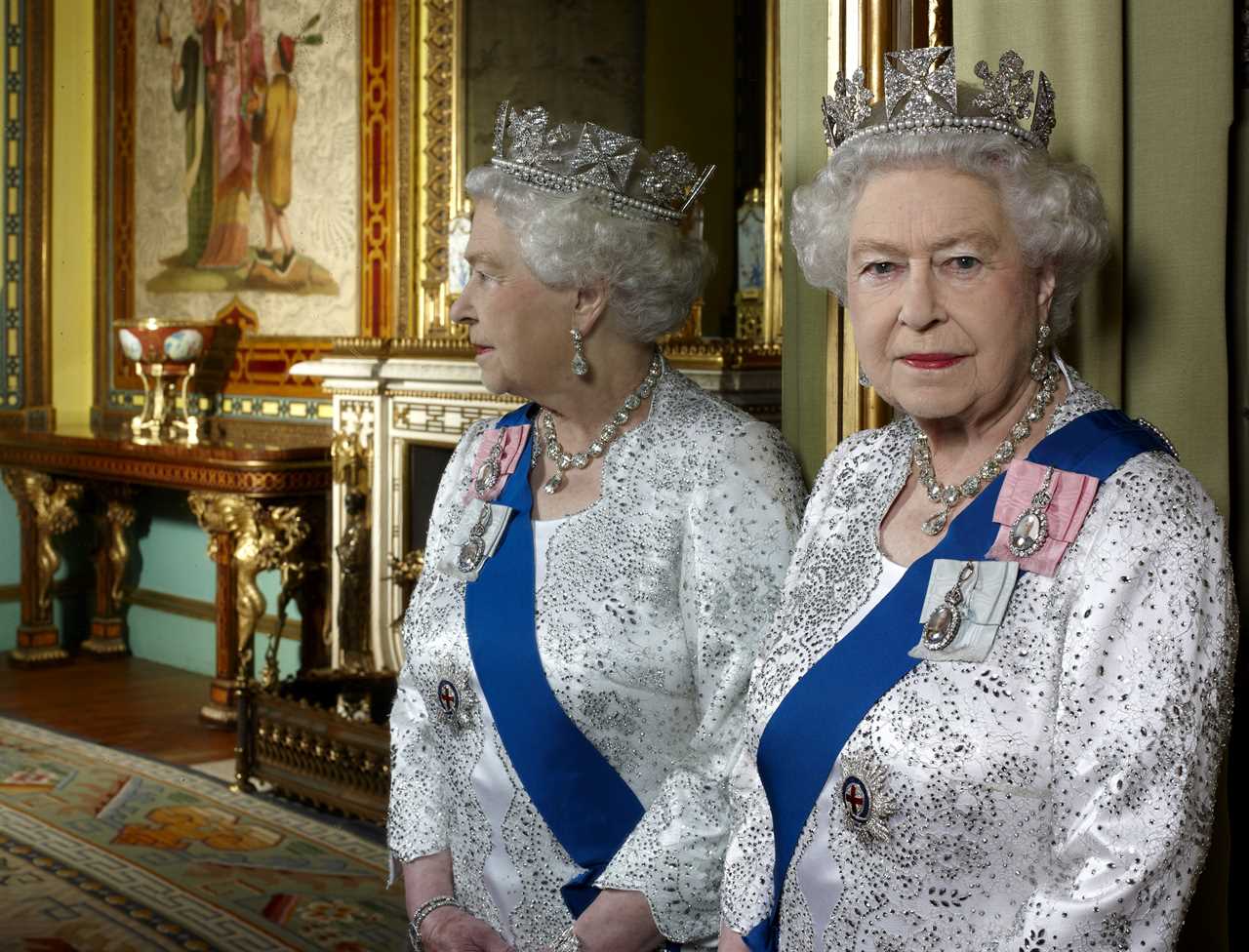
But we have never had one whose fundamental character was more solid and admirable
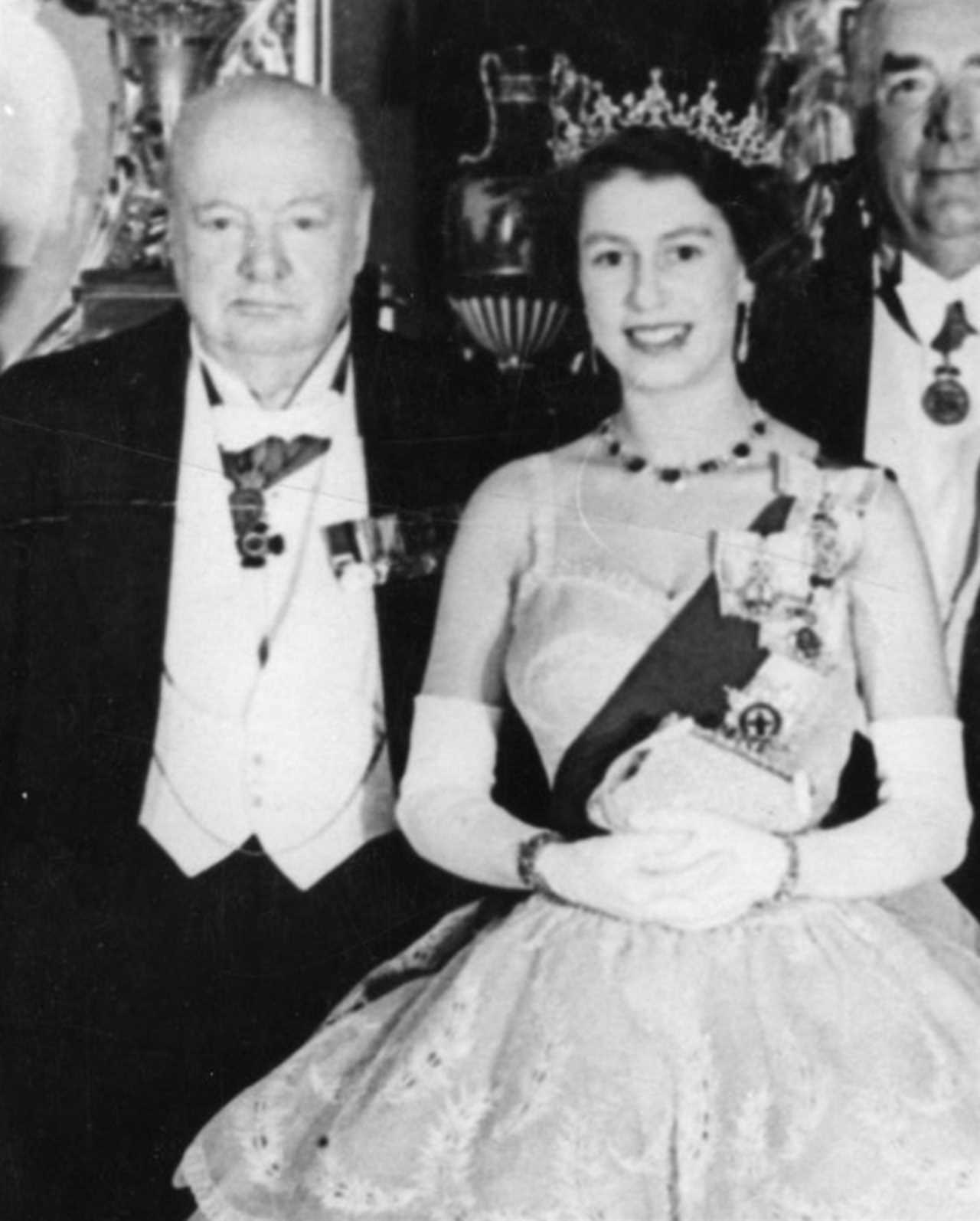
Despite Churchill’s famous warning against letting daylight in on the magic, the more daylight you shone on the Queen, the better she looked
Despite Winston Churchill’s famous — and borrowed — warning against letting daylight in on the magic (his argument against filming the 1953 Coronation), the more daylight you shone on the Queen, the better she looked.
While not a revolutionary or even a natural innovator, she understood more than most of her Prime Ministers what ordinary people felt and wanted.
Like her Scottish mother, she was canny. And like her father, she was honest and utterly free from the snobbery of the English aristocracy.
Going back to her Coronation, it was Prince Philip, her beloved, modernising consort, who had broached the idea of letting the public see the ceremony through the new medium of television.
Using a colourful analogy, Princess Michael of Kent once told me at a dinner party at Kensington Palace: “The Queen has always been like a sponge. She doesn’t shine with originality but she is able to soak things up.”
My father had been lucky enough to attend the Coronation, which of course was televised to the world, despite the dismissive bombast displayed by politicians and courtiers.
According to my father, even the Queen had initial doubts, but once she had made up her mind she stood determined, sailing through history like a steel ship loaded with granite.
No conceivable seduction could weaken her, to Churchill’s great annoyance.
Her first Prime Minister, he could intimidate God himself, but not the young woman who proved a better politician even than he.
Not that she was always made of iron. She had bounce and give and softness. People who got to know her described the Queen as a serene spirit, someone free from moral indignation, with an all- embracing tolerance and sense of fair play.
She had not shirked the hard knocks of life. On the contrary, she was frequently an eager gladiator. But she guarded herself by assuming that her opponents were as decent as she was.
And she wasn’t a plaster saint, nor some solar myth. There were often efforts to pump all weakness out of her and leave her a mere moral apparition. Such efforts are absurd.
There were people and things she didn’t like and she could make this quite plain, particularly at the beginning of her reign.
Like some of her subjects, she held prejudices that were of her time. “Back then, if someone who worked at the Palace was gay,” said a former courtier, “we never told her.”
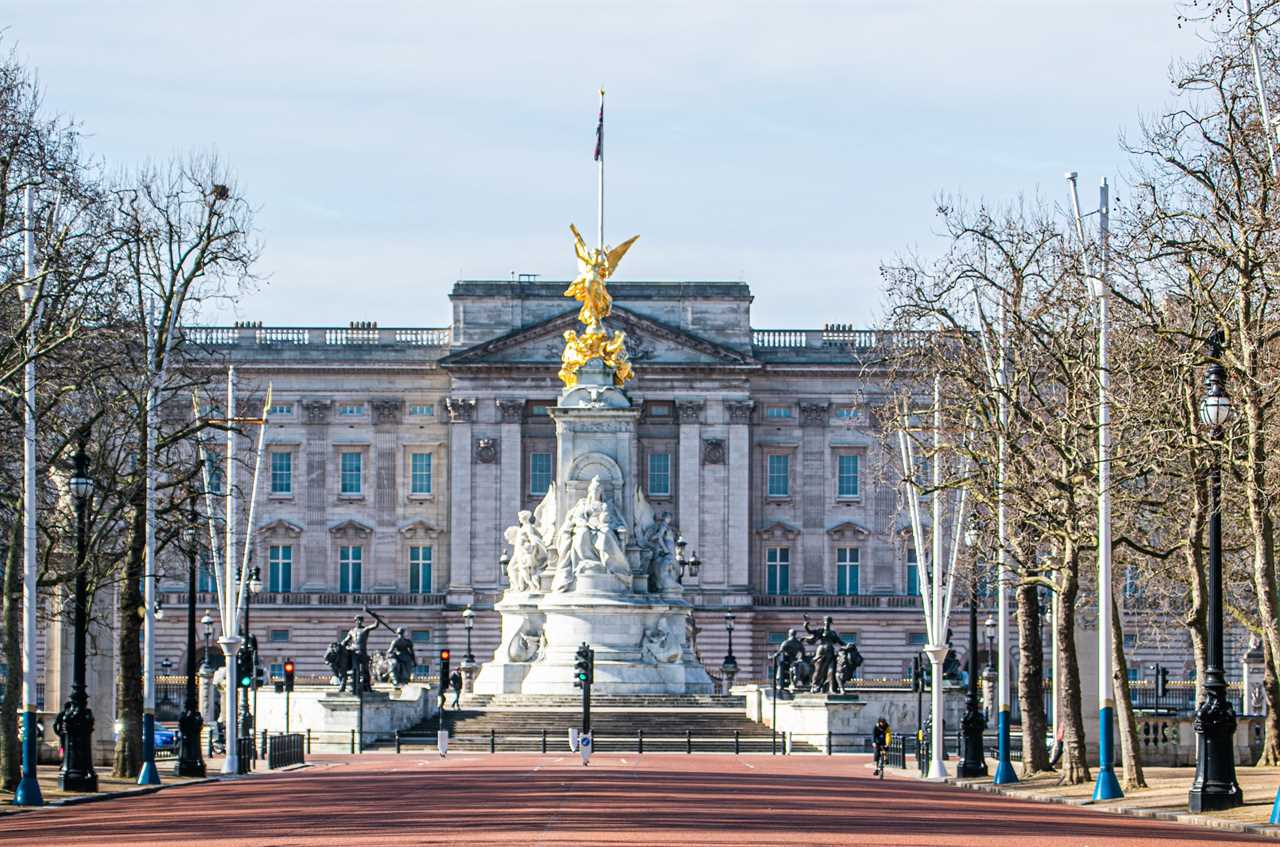
‘If someone who worked at the Palace was gay,’ said a former courtier of Buckingham Palace, ‘we never told her’
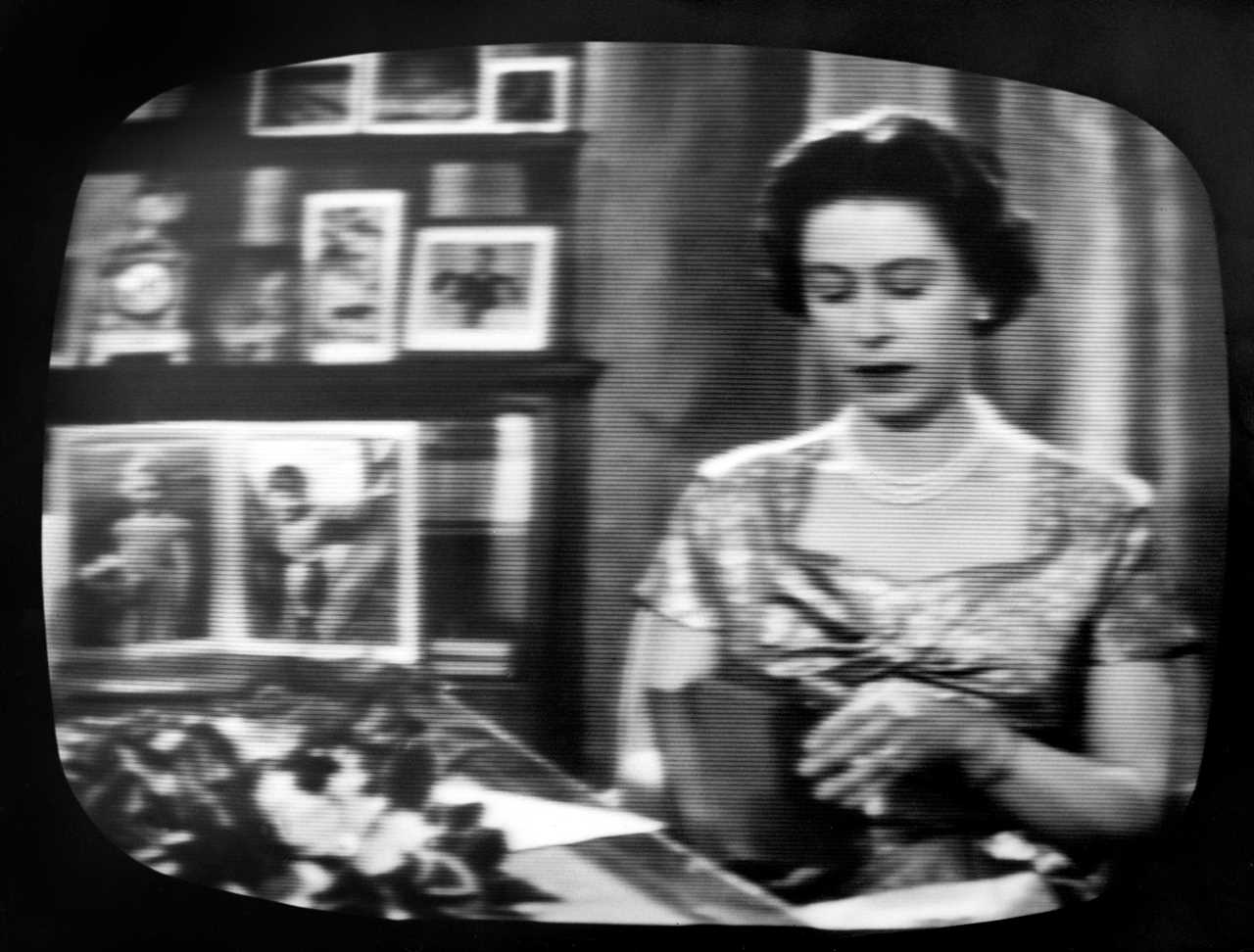
The result of Lord Altrincham’s attacks on the Queen was the first televised Christmas message in 1957
“She wasn’t homophobic, but she wasn’t a sophisticate either. To put it another way, she didn’t always think progress was progress.”
There were times when the Queen — inevitably, given the way she lived — did stumble and misread the mood of a changing post-war Britain.
In the late-1950s she was subject to an infamous attack from the Conservative peer Lord Altrincham.
Altrincham, who was, conversely, a monarchist, had watched a televised speech she had made while waiting for an appointment with his dentist.
Unimpressed, he duly wrote a magazine article — extensively reported soon after in more widely read newspapers — describing the Queen’s performance as hollow, irrelevant and snobbish and questioning whether such a “remote” monarch could survive the 20th Century.
The Queen had lived through Elvis Presley and rock ’n’ roll, and was to live through The Beatles and the Swinging Sixties — without being aware of them in any tangible sense, though her hemlines did rise half an inch during the day.
But, as her Private Secretary Michael Adeane put it: “She was under an obligation to her country and to her God.”
Hollow, irrelevant and snobbish
Altrincham was invited to the Palace and, albeit reluctantly, the Queen listened.
The result was the first televised Christmas message to the nation, in 1957, however stilted — and the introduction of Buckingham Palace garden parties, enabling members of the public to meet her in person.
Was the Queen political?
Since the Glorious Revolution of 1688-1689, when James II suspended Parliament and was deposed for his pains, members of the Royal Family have tried — not always successfully — to avoid showing political favour or expressing such opinions, at least in public.
But as the Queen Mother once told me: “We like a paternal Tory Government that looks after people who need help, and a strong Labour Opposition.”
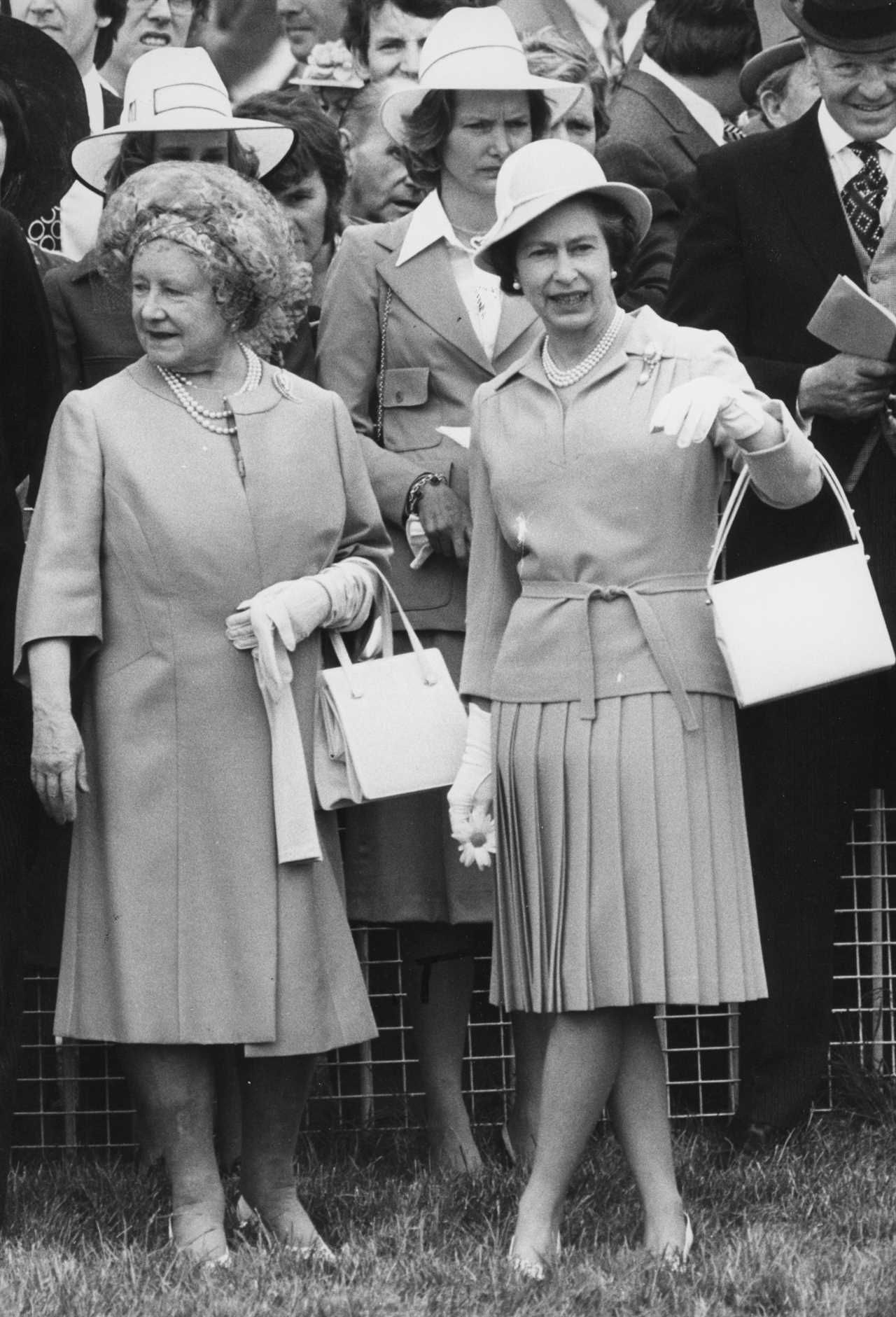
The Queen Mother once told me: ‘We like a paternal Tory Government’
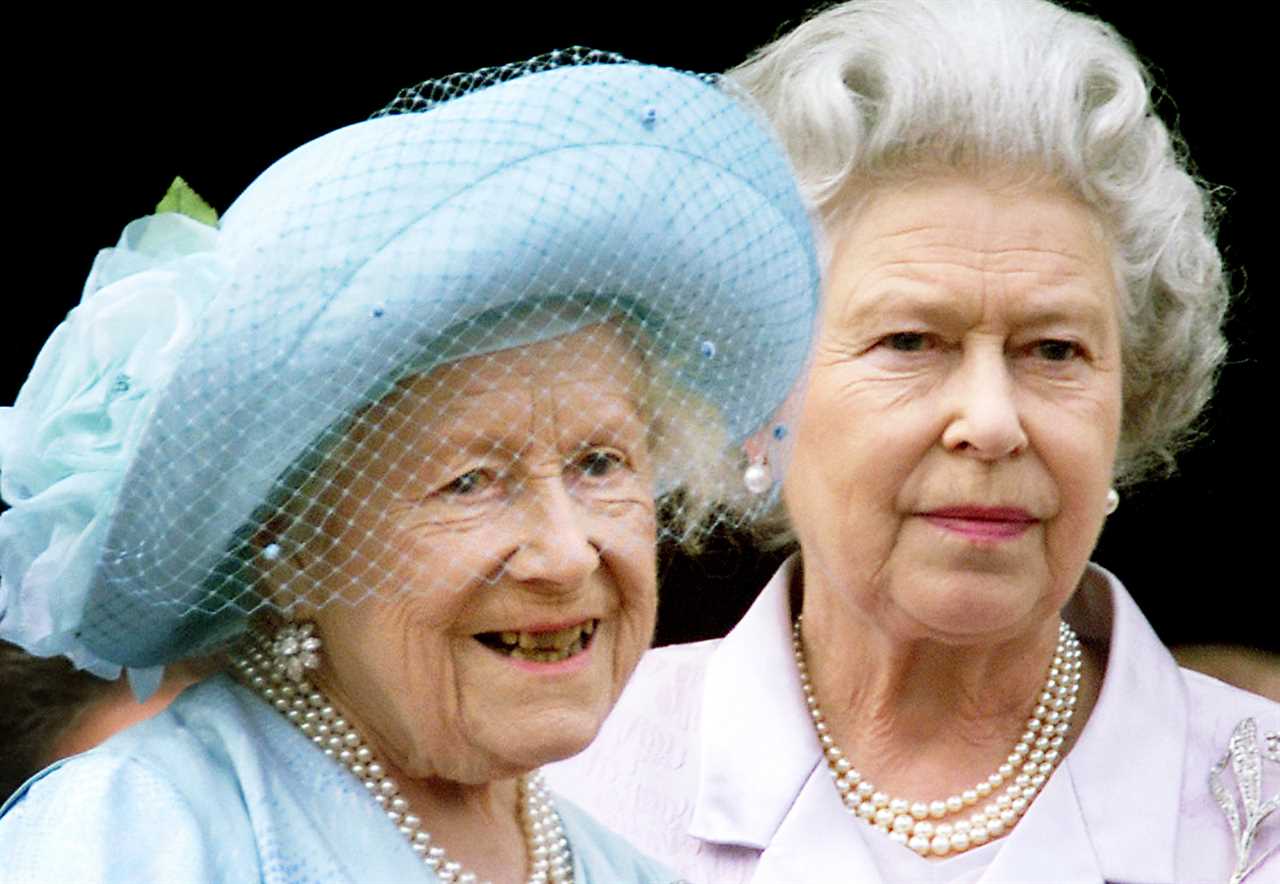
If anything, the Queen was more ‘Leftish’ than her parents
If anything, the Queen was more “Leftish” than her parents. She never, as her mother did, drank a nightly toast to Margaret Thatcher.
The 1984-1985 miners’ strike and the social divisions caused by Thatcherism alarmed her before she comprehended what Margaret Thatcher was trying to do.
Constitutional monarchy in Britain is more than the sum of the individuals that make it up at any one time.
Our monarchy is an essential institution designed to provide a check on the elected ministers of state and, by implication, any Prime Minister who attempts to become overpowerful or go to political extremes.
The Queen had lived through the age of dictators, in Germany, Spain, the Soviet Union and Eastern Europe, but there was never such a dictator in Britain.
It was not only because of our unwritten constitution, which the Queen understood better than her Prime Ministers, but the character of the Queen herself.
All over Europe, monarchies had tumbled because they had collaborated with dictators or given in to them.
“What ifs” are dismissed as pub history, but what if the weak and easily cajoled Edward VIII had not abdicated?
Elizabeth II took her right and duty to warn her Prime Ministers very seriously indeed.
There was a point beyond which she would not go, there were statutes she would not have signed into law — and throughout her reign, her people seemed to know this and looked upon her as their protector.
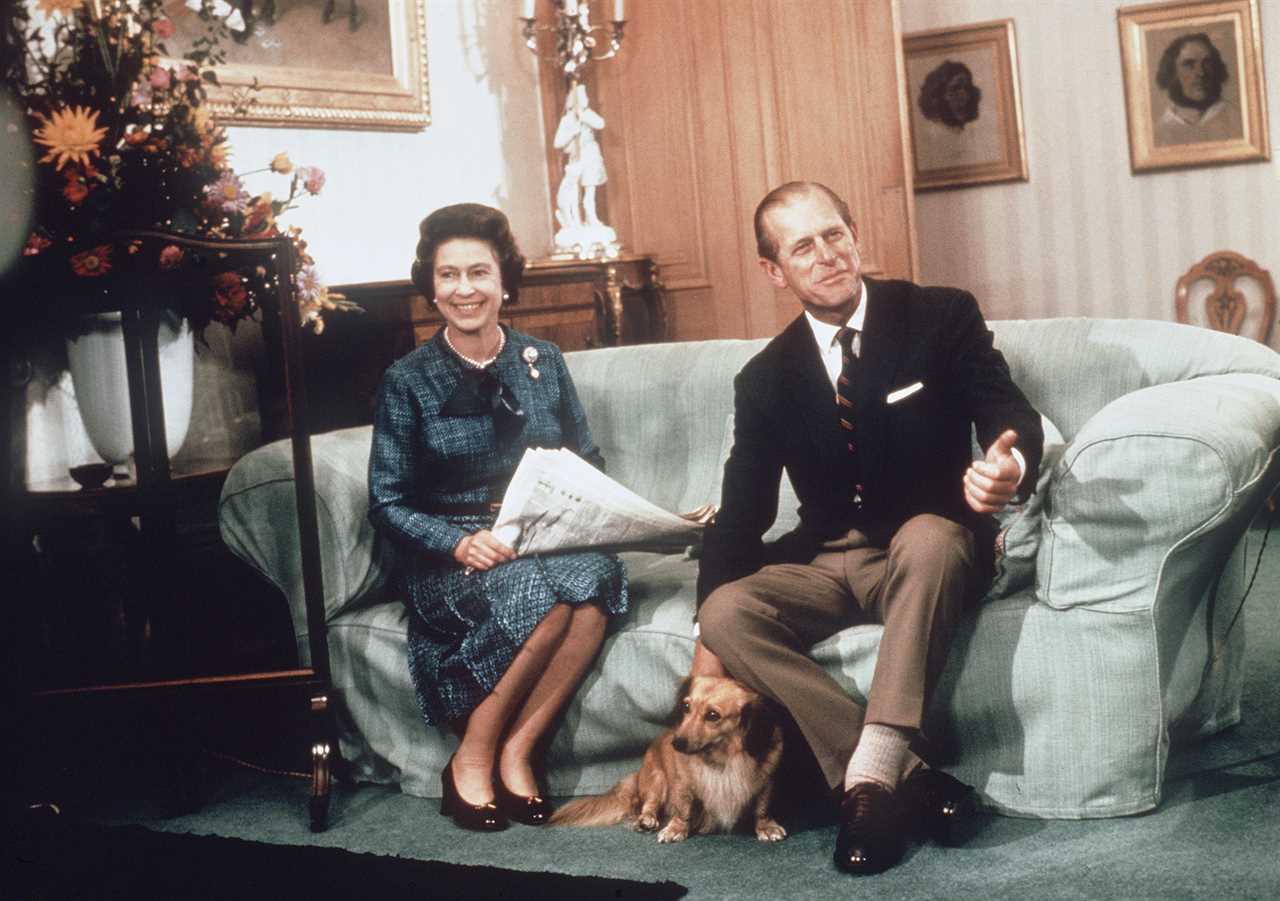
It was Prince Philip, her beloved, modernising consort, who had broached the idea of letting the public see the coronation on television
She had more sympathy with Michael Fagan, the troubled, unemployed man who broke into her bedroom at Buckingham Palace in 1982, than with Margaret Thatcher at the height of her glory.
I often wondered if she was jealous of Lady Thatcher, with her blonde hair and alabaster skin, who for a time almost eclipsed the Queen as the most famous woman in the world.
In private, the Queen could be, if not envious of other women, then a trifle scathing.
She was not won over by Jackie Kennedy, who made a state visit to Europe with her husband, President John F. Kennedy, and dined at Buckingham Palace in 1961.
“The Queen never understood that kind of woman — the skinny fashion plate who needed to wear the very latest styles,” said Lady Angela Oswald, a friend and lady-in- waiting.
“Nor did she understand people who needed constant adulation in the media.”
The Queen never expected the world to applaud and cry Hosanna just because she was performing her job and doing her duty.
This led to her inability to understand Princess Diana, with whom she could sympathise but not fathom at all.
Diana’s hysterics and extreme sensitivity were something quite alien to a woman who had lived through the Blitz.
If there was a crisis that seriously affected the Queen, both as an individual and a monarch, it was that caused by Diana’s death in a Paris car crash in 1997.
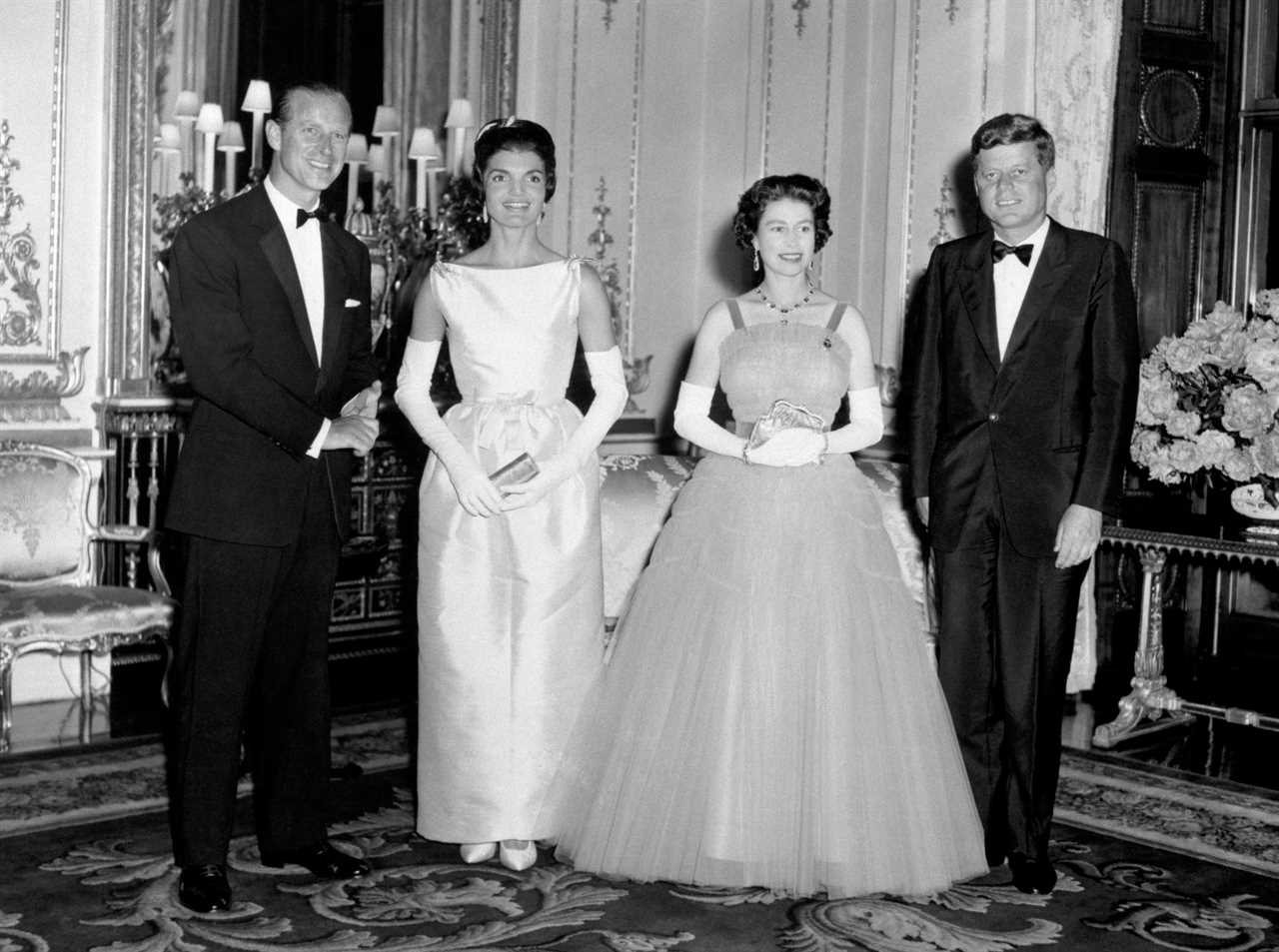
She was not won over by Jackie Kennedy, who made a state visit to Europe with her husband, President John F. Kennedy
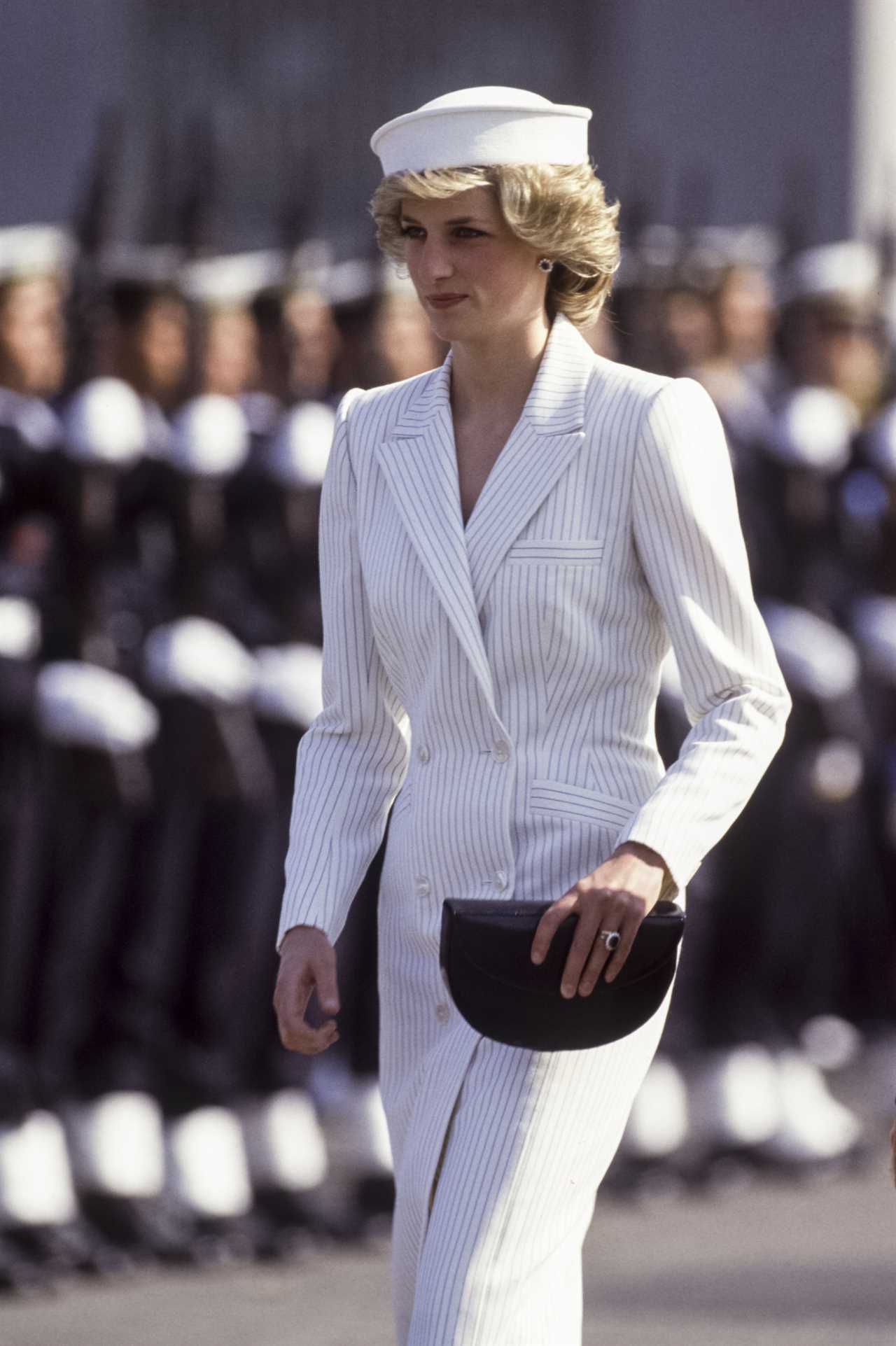
Diana’s hysterics and extreme sensitivity were something quite alien to a woman who had lived through the Blitz
The Queen’s simple emotions were unequal to the situation, because her first reaction was as a grandmother, trying to protect a young William and Harry from the public maelstrom.
It was one of those rare occasions when her reflexes were those of a woman, as opposed to a Queen.
She also sought to comfort Prince Charles who, contrary to received wisdom, was devastated by Diana’s death.
Unwilling to comprehend that a royal such as Diana could be something as transient and vulgar as a celebrity, the Queen heard the howling of the mob and turned her face to the wall.
Faced with an intolerable, alien situation, she hoped public hysteria would cease.
When it did not, and her subjects began demanding that she return to London and make some display of contrition, for a moment she floundered.
I believe it was Prince Philip, as much as the then PM Tony Blair, who gently nudged her into what seemed to be required to pacify sections of the media and her distraught people.
Princess Margaret later remarked: “The whole thing was ridiculous. Undignified. I wouldn’t have done it.”
But the Queen’s visible presence, like that of a mother, had an immediate calming effect that no politician could have induced.
DUKE OF BARK
Andrew to be left Queen's three corgis as fate of beloved pets is confirmed
“Maybe it was less a testimony to Diana but the fact the public needed the Queen in an emotional sense,” said her cousin John Bowes-Lyon. “It was almost as if they wanted her to dry their tears and tuck them up in bed.
“After her televised speech from Buckingham Palace, in which the Queen referred to herself as ‘a grandmother’, it was plain sailing again. At least for her.”

